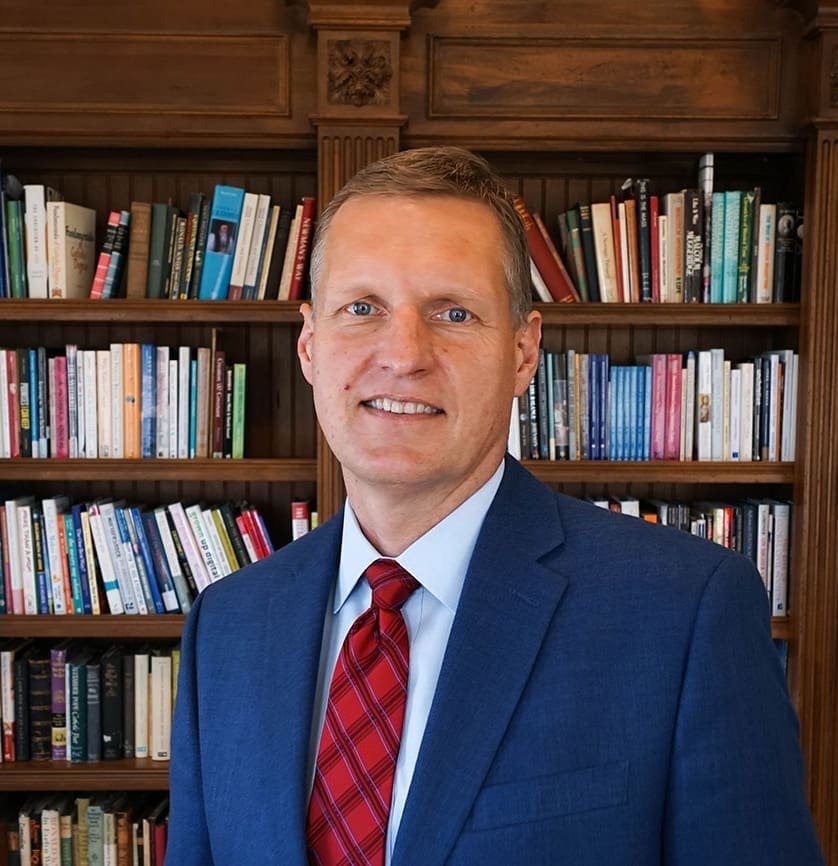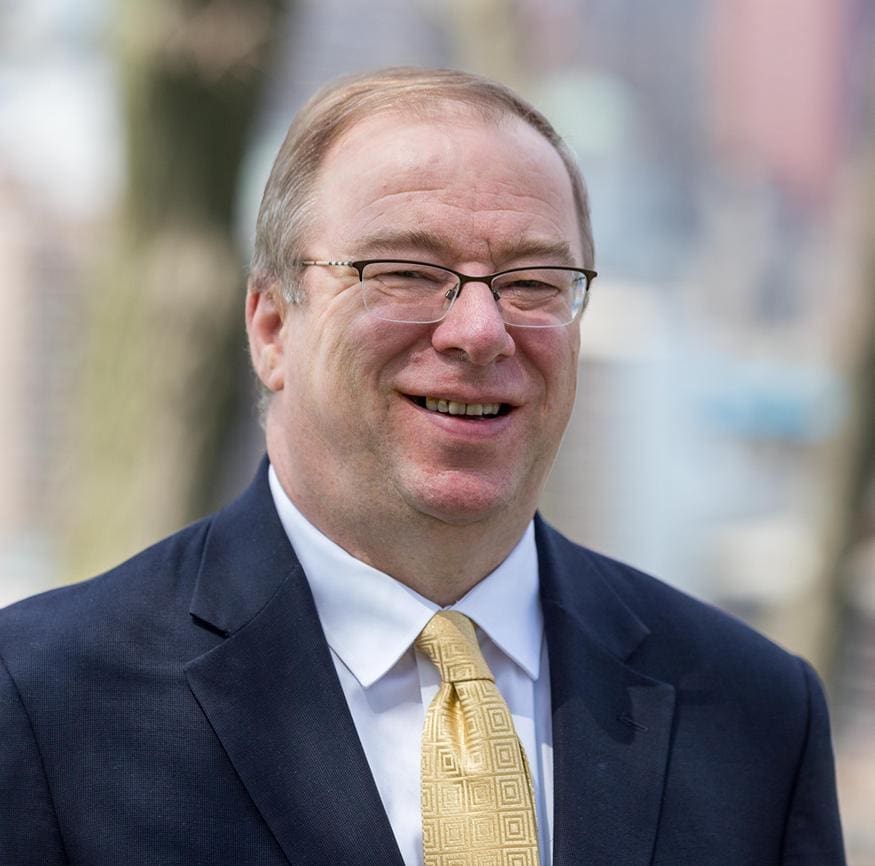Dear Ray,
Shortly after the COVID-19 lockdown started in Canada, I gave a talk at a staff meeting with two primary thoughts.
The first was that leaders were going into a time of tremendous complexity. We would need to make decisions with limited knowledge of the problem and very little understanding of the unintended consequences of our actions. We would inevitably get some things wrong. We might actually get them seriously wrong.
This led to the second thought. Would each of us—all of us as staff and each of us as citizens—be able to forgive the mistakes that will inevitably be made? Even with right motives, leaders can make dramatic mistakes. Hindsight will show not only that were we sometimes wrong in our response to the crisis but also that others endured resulting harm for seemingly no good end as a result of that response. Some cost-cutting efforts may go too deep, and firms will lose key staff and the future capacity to adapt. Our conversations and imaginations may be stifled by this experience for years to come. Or perhaps the focus on responding to short-term transitional issues will blind our judgment and cause us to overlook the longer-term transformational trends.
My aim in the staff meeting wasn’t to superficially avoid responsibility through a pre-emptive pietistic discussion of forgiveness. But I did sincerely worry that a culture of bitterness and blame would be the consequence of such mistakes.
Which raises the question: What determines whether mistakes are answered by a culture of bitterness or forgiveness?
MVP
***
Dear Michael,
Not an easy question.
I wonder though if the answer isn’t as much about the future as it is about the past. Stephen Covey’s The Seven Habits of Highly Effective People popularized the bank-account metaphor to explain the trust relationship between leaders and followers. Asking a follower to do things results in a withdrawal from the trust account. People’s willingness to follow (and by extension forgive) is proportional to the extent to which there is a preexisting positive balance.
Covey suggested six ways to make deposits in this account: understanding the individual, attending to the little things, keeping commitments, clarifying expectations, showing personal integrity, and apologizing sincerely when you make a mistake. Withdrawals happen when the opposite occurs. Effective leadership always requires an overall positive balance in the trust account.
If Covey is right, there are two things that will influence the likeliness of a culture of forgiveness. The first is the balance in the trust account going in. This is truly a situation where leaders will reap what they have sown. The second is how leaders deal with their own mistakes. Covey talks about apologizing sincerely. Might the reason there is little forgiveness be that many don’t know how to ask for it? Do leaders have the courage, candor, and willingness to concede mistakes? Covering up with talking points or trying to whitewash the record and pretend that mistakes never happened is to make a double withdrawal, which diminishes rather than builds on trust.
I’m not naïve. Admitting mistakes is difficult for most. Still the common “apology” that amounts to something like “I’m not perfect but neither is anyone else” or “I’m sorry if you took offence” doesn’t really meet the mark.
“Let him who is without sin cast the first stone” was Jesus’s challenge to the Pharisees. When it comes to leading through the COVID-19 challenge, it is easy to document changes in almost every government’s messaging over the past few months. No one got it totally right as it relates to travel advisories, border controls, the pace at which social-distancing measures were implemented, predictions about the spread of the virus, and the release of data and modelling.
The extent to which there will be a general willingness to forgive will have as much to do with how leaders account for their mistakes as it does with the follower’s attitude. It’s not either/or but a both/and. COVID-19 is testing the capacity of the literal bank accounts that governments possess, but this volatility will extend to the trust accounts between our political leaders and the citizenry.
RCP
***
Dear Ray,
You’re right about the importance of the trust relationship going in. But that’s actually a discouraging thought. Weren’t we experiencing increased polarization in the public square pre-COVID-19? Do bad trees bring forth good fruit? Isn’t the seed of polarization more likely to produce the fruit of bitterness than forgiveness? And when bitterness becomes a dominant public currency, isn’t forgiveness even more difficult?
It’s probably important to highlight that I’m not really thinking about ideological or philosophical categories here. It’s something more than that. I am talking about a social and cultural phenomenon where questions around trade-offs, loss of freedoms, short-term spending, and long-term planning are so deeply complicated that they seem to defy any frameworks for decision-making.
And there is another dimension you haven’t mentioned. In recent years, public apologies for historical wrongs have become increasingly common—think apartheid and Nelson Mandela in South Africa. Canada has made multiple official apologies to indigenous peoples in recent years. Shortly after taking office, Prime Minister Stephen Harper officially apologized for the Canadian head tax on Chinese immigrants over a century ago. Add to the mix the other sort of apology that we’ve gotten used to—the apology of a leader every time some moral failing in their past has been exposed.
Can these “hindsight” requests for forgiveness teach us anything? Two thoughts come to mind:
- Humility. What did I get wrong and how did I get it wrong? This is extremely difficult to execute in a highly politicized environment. It is easier in a corporate setting where leaders’ positions depend less on public approbation.
- History. What did I do and why did I do it? What was the context? What had the past taught us to do? What good might come from this trouble?
But there needs to be something more than this, no? I’m not so sure that just looking at the past or fearfully worrying about the future exhausts what we can learn about the inevitable challenges that will emerge post-COVID-19.
So much for now,
MVP
P.S. One more thought. How do we account for the pace of decision-making that is called for? We’re writing this with the comparative leisure of reflective consideration, even if it is too late in the evening. But day to day in this crisis, I know that I am feeling that my (and maybe our) judgement can hardly keep up. We are being challenged to make decisions without adequate data or an understanding of all the implications. (And to decline to make an immediate decision is as much a decision as to act decisively. One gets more headlines, but both have consequences.) Today, leaders are being forced to make calls on gut instinct, and the probability of error is much higher. Does this change the forgiveness calculus in any way?
***
Michael,
I’m going to duck your postscript challenge. Leaders don’t get to pick the situations in which they make decisions but have to deal with the situations with which they are presented. Mordecai’s counsel to Esther in the Old Testament story applies to every leader: Who knows whether you have come to the kingdom for such a time as this?
As for the bigger question, we started with your hope that followers would grant their leaders grace and forgive the inevitable mistakes that are being made in the midst of the COVID-19 crisis, recognizing the circumstances of the moment. Rereading our exchange to date, it would seem that forgiveness is not an imperative but rather an indicative. Doesn’t it have more to do with who you are than what you decide to do? Forgiveness isn’t having my “I’m sorry” answered by someone else’s “No worries.” Rather, it involves changing our understanding of ourselves and one another. To forgive someone (especially for a wrong that inflicted damage on me) means to change my mind about how I think about that person. I am always fond of the example that a pastor once provided: “The test is not whether the disputing brothers shake hands and say ‘I’m sorry’ in the mediation session, but whether the next time they see each other they genuinely deal with each other as if the dispute had never happened. That is when you know forgiveness has been given.”
Any culture of forgiveness will be proportionate to the genuine humility and mutual respect that exist between leaders and followers. In an age where personal autonomy is so valued, thinking more of the other such that I defer to their assessment of a situation over my own is countercultural. It’s easy to talk a good game about respect and valuing the other; meaning and living it in our deepest being is a different matter.
It’s hard to square the circle between the polarization that existed pre-COVID-19 and such mutual respect. But there may be another variable. Do you think that the experience of COVID-19 might change us, both leaders and followers? There are some hopeful signs. It is interesting to observe the category confusion as those on both the right and left speak hopefully about life requiring more than material stuff. I’ve had dozens of conversations in which very successful and busy people who hardly had time to have meals with their families are playing board games with their kids. Not only are they doing so; they’re liking it. They are realizing that they were missing something.
I’m not saying that meals, board games, and other such behaviours (even saying “I’m sorry”) are accurate proxies for telling us that something deeper is going on. But neither are these irrelevant. Being able to forgive and be forgiven in the public square requires a framework quite different from saying my personal autonomy is the ultimate good. It points to the fact that we share space in society with other people, and it is not about us or them but rather us together in pursuit of some higher calling or norm. Might the rediscovered practices of eating as a family, prioritizing kids, and seeing that there is more to life than whatever we thought there was three months ago not help nudge us in the right direction?
RCP
***
Ray,
This is a hopeful note, and I deeply desire its fulfillment. But my organizational brain turns right away to “How do we scale this? What does it mean for our social structures? There are so many aspects of life in flux right now. Is it reasonable to expect society to bend toward this kind of social good you are talking of? What does this mean for my leadership practices today?”
I agree that our COVID-19 experience exposes a yearning for a “loving” (may I use this word?) relationship with each other and our world. Yet will this yearning be accompanied by a magnanimity that will soften our hearts toward forgiveness?
MVP
***
Michael,
As I read your response, I was reminded of two books. Former Comment editor Jamie Smith wrote You Are What You Love. His point was that humans are not brains on sticks but people with passions, and that it is our loves that shape our habits. Current Comment editor Anne Snyder’s The Fabric of Character illustrates how character doesn’t just apply to individuals but also to institutions. And so yes, maybe this has something to do with our leadership practices today, even as we recognize that this isn’t stuff that can be organized or manufactured.
Still, I think your query about whether you were allowed to yearn for love is more important than the tactics your organizational brain was considering. Sure, the giving and granting of forgiveness is contextual. The cultures we create and the leadership we practice has a lot to do with making forgiveness more or less likely.
But more significantly, it is our collective loves that are at the core of the issue. You know I’m not the huggy sort. I prefer talking about purpose over loves. But a meaningful purpose or telos will shape your loves, so while the philosophers won’t be happy with our shortcut, in practice I think conflating the two for this discussion is okay. Besides, framing it in terms of love is probably more relatable and practical.
Leaders regularly make mistakes, and even more of them in this COVID-19 context. I’m certainly thankful that I don’t live in a pure meritocracy where there is no room for mistake or forgiveness. But I think you are right. The extent to which forgiveness is granted is probably proportionate to the extent we share greater purpose and common loves. If we find reasons to live together beyond ourselves and our personal feelings, there is hope and opportunity to move forward, even if and when we screw up.
RCP



